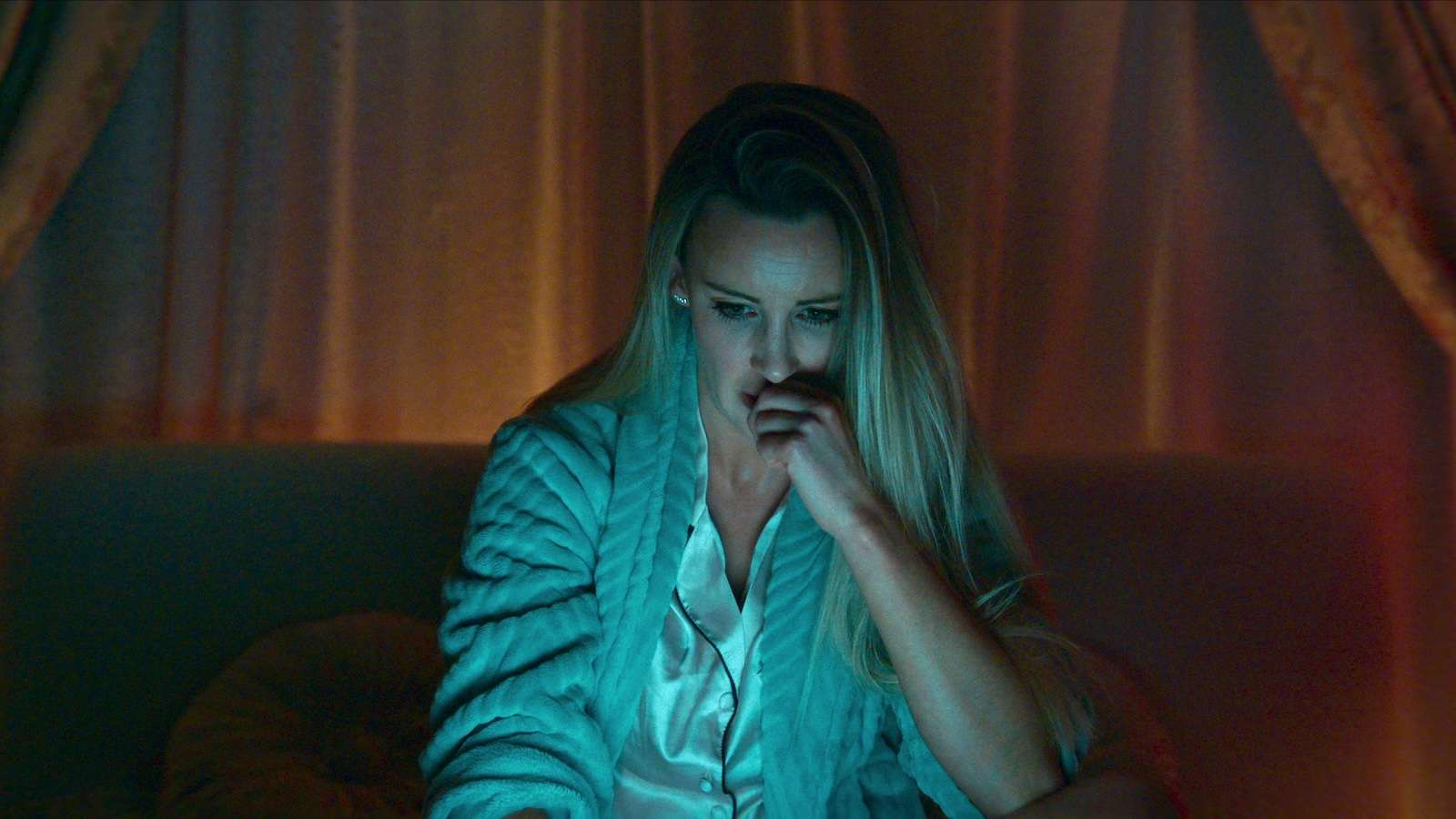Can I Tell You a Secret? (2024) Netflix Docuseries Review: “Identity theft is not a joke, Jim!” This is what Dwight Schrute yelled at Jim Halpert in the popular, Steve Carrell-led American version of “The Office.” And it is not. In the Internet and social media world, the definition of identity is already distorted. We have our online persona and our real ‘persona.’ For many, there is not much of a difference between the two personas. For some, the dichotomy between the two is harmlessly stark. But for a select few, the world of the Internet is a license to embrace the real self for worse.
In “Can I Tell You a Secret?”, a true-crime docuseries of two fifty-minute episodes, we take a peek into the mind of one such perpetrator. Matthew Hardy has been at the center of UK’s one of the most notorious cyberstalking crimes. Hardy, using the anonymity that is provided by most social media platforms, set off on a spree of harassment that took precious years out of his victims’ otherwise happy lives. Using fake accounts and human beings’ tendency to assume the worst of people, Hardy had a successful run in making his victims’ lives a living hell.
With the total runtime being a little more than a hundred minutes, “Can I Tell You a Secret?” chooses to go two-part series way. The reason for that is it felt the need for a clear distinction between parts I and II. While Part I focuses on the primary victims, and the ordeal they went through, Part II has Hardy in its focus. In Part I, we are introduced to the three women: Abby, Lia, and Zoe. All of them are shown to be confident professionals, and happily embracing the novelty of social media.
Like in real life, candor and confidence in women can often be perceived as bold and brash by men. And when this happens in the online world, it opens the can of worms we know as the “Internet trolls.” In one moment in the documentary, Hardy can be heard saying he was ‘pissed off’ by ‘these women.’ By that, he meant women with the agency to follow whatever their heart desires. And when he is pissed off, he does what every Internet troll tries to do. He tries to hurt them.

Only unlike most trolls, Hardy is not content with just one off-handed insulting remark. No, he is much worse. He sets up fake accounts to harass these women, often by impersonating them and sending salacious messages to their friends and associates. For example, Hardy takes control of one of his victims’ profiles and sends flirty messages to the father of one of her friends. The first part highlights the various kinds of ordeal the three women, Abby, Zoe, and Lia, went through. Police turned them down, downplaying the degree and impact of these cyberstalking attacks.
The second part depicts how one police officer’s willingness to do his job finally helps these women get justice. This part tries to explore the origin of Matthew Hardy. There is no doubt that the subject is grave enough for Netflix to sanction a true-crime series. However, “Can I Tell You a Secret?” suffers from a run-of-the-mill execution. Series director Liza Williams plays it too safe and succumbs to the repetitions of all the tropes that we often associate with a true-crime series.
For example, there is a barrage of shots featuring electrical wires supposedly sending the electrical signals. To denote the Internet’s reach all over the world and how fast information (and misinformation) spreads. Perhaps it was a novel imagery for the first time. But as for the numerous times that follow, not so much. Moreover, the re-enactments are not gripping enough and sort of languid. Unlike some of the successful true-crime ventures of Netflix, “Can I Tell You a Secret?” loses steam and fails to be gripping despite an interestingly provocative subject.
The decision to allow the victim to present their tales uninterrupted by the interviewers’ questions (a la verite) is not a bad choice. The anecdotal nature of the interviews allows the victims to shine. It plays on the earnestness of these women who have suffered trauma through the entire ordeal. “Can I Tell You a Secret?” does one more thing right. It does not allow the pity party for Hardy to continue more than it should, rightfully highlighting the fact that his behavior has triggers, but not justifiable enough to be excused.






![Anima Netflix [2019] Review – This Thom Yorke & PTA one-reeler is Visually Breathtaking](https://79468c92.delivery.rocketcdn.me/wp-content/uploads/2019/07/Anima-Netflix-768x432.jpg)